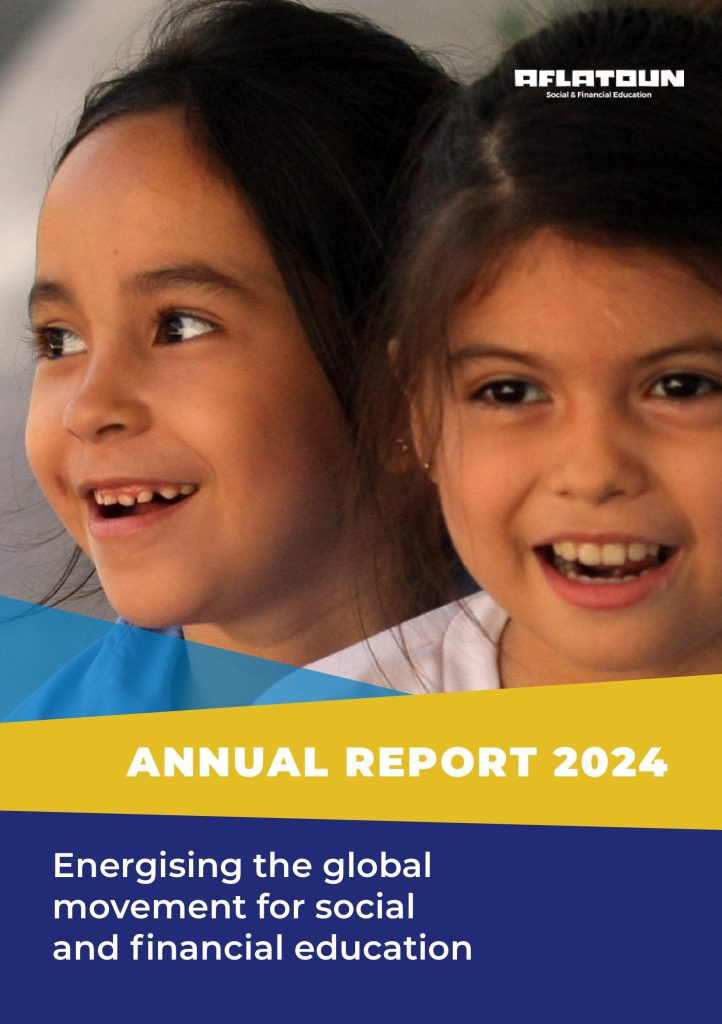“Empowering Girls with Social and Financial Skills” is the name of the project that Aflatoun International is carrying out in Senegal, Benin and the Democratic Republic of the Congo with the support of the Nationale Postcode Loterij that seeks to socially and economically empower an estimated 26,000 adolescent girls and boys (aged 10-19) over the course of the next 3 years.
During the first year, the learning material was prepared and the grounds were set for implementation, including assessing the needs of the three countries, identifying the partners, contextualizing the Social and Financial Education content, training the facilitators and teachers, planning the sessions, and establishing the Aflateen clubs in various regions.
Another key component of a project is the baseline study, under the objectives of Monitoring & Evaluation. The baseline study is conducted before a programme is rolled out and distributed to learners, so as to assess their knowledge and experience prior to the implementation. The objective of this study is to analyse the current situation of the beneficiaries of the programme, so that at the end of the project, when the endline study will be conducted, it will be possible to track the effects and impact that the education programme had on the target group. The baseline study collects both quantitative and qualitative data, in order to base the results regarding the efficacy of the programme on evidence.
In September 2022, Leontien Ruttenberg, the Monitoring & Evaluation Manager from Aflatoun followed closely and provided training to a group of data collectors in Dakar, Senegal. The training included interview techniques as well as data collection and management. The participants were motivated and will start with the baseline data collection after the Aflatoun clubs’ opening in October.
Based on prior research, it is expected that effect sizes – namely the data indicators that will be measured through the studies – in Financial Education will be similar to core curriculum subjects such as math and reading. The questionnaire that will be used in this project has been employed in other contexts and adjusted so as to relate to the Senegalese education system.
After providing training to the data collectors, the group visited a lower secondary school in Dakar and a group of students attending the Centre Sportif Fayda – Aflatoun’s in-country partner. The goal was for the researchers to become comfortable with the questionnaire and ensure the questions were understood by both the researchers and the students. This phase of pre-testing is fundamental as 2,000 adolescent boys and girls will take part in the project in Senegal and the study will investigate a sample group to measure the effect.
Similarly, this Monitoring and Evaluation workshop was conducted in Kinshasa, in the Democratic Republic of the Congo at the end of August, on a bigger scale. Thanks to the collaboration with Aflatoun’s local partner APROCEC, the baseline study is now underway in DRC.
Learn more about Monitoring & Evaluation at Aflatoun International: https://www.aflatoun.org/our-work/monitoring-and-evaluation/












